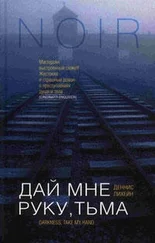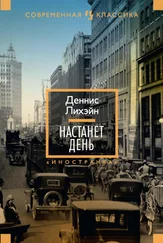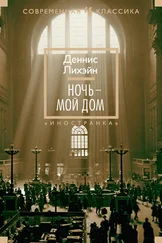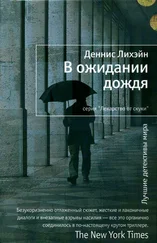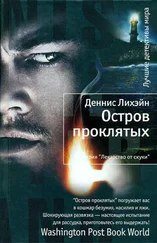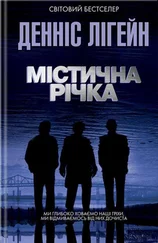Dennis Lehane (Editor)
Boston Noir

**

INTRODUCTION.
TRIBALISM & KNUCKLEHEADS
No matter what you may hear to the contrary, noir is not a genre defined by fedoras, silver streams of cigarette smoke, vampy femme fatales, huge whitewall tires, mournful jazz playing in the gloomy background, and lots and lots of shadows. Nor is it simply skuzzy people doing skuzzy things to other skuzzy people, a kind of trailer park opera. One could argue that what it is, however, is working-class tragedy. Aristotle, when he defined tragedy, mandated that a tragic hero must fall from a great height, but Aristotle never imagined the kind of roadside motels James M. Cain could conjure up or saw the smokestacks rise in the Northern English industrial hell of Ted Lewis’s Get Carter. In Shakespeare, tragic heroes fall from mountaintops; in noir, they fall from curbs. Tragic heroes die in a blaze of their own ill-advised conflation. Noir heroes die clutching fences or crumpled in trunks or, in the case of poor Eddie Coyle, they simply doze off drunkenly in a car and take one in the back of the head before they have a chance to wake up again. No wise final words, no music swelling on the soundtrack.
Eddie Coyle is a good example here because if there’s a more seminal noir novel of the last forty years than The Friends of Eddie Coyle , I don’t know of it. And more than just being a seminal noir, it’s also the quintessential Boston novel. It captures the tribalism of the city, the fatalism of it, and the outsized humor of people who believe God likes a good laugh, usually at your expense. Boston is a city that produces guys-or, in the city’s vernacular, knuckleheads-who once stole the replica of a cow that sat in front of a Braintree steak house. The cow weighed what a car weighed, and yet these knuckleheads had the industry to get it onto a pickup truck, drive it back to South Boston, and deposit it in the middle of Broadway. They did this solely so they could then call the Boston Police Department and ask them to respond to a “beef going down on Broadway.”
In Boston something doesn’t simply hurt, it hurts “like a bastid.” Pisser is a noun that means something funny, but pissa is an adjective (and sometimes an adverb) that equates unequivocal greatness, although it’s often equivocated with wicked , as in, “Big Papi hit a wicked pissa homa against the Yankees. Musta hurt them like a bastid.”
So we have our distinct humor and our distinct accent and our distinct vocabulary. All of which-sadly, possibly-is now endangered by progress. Because one can’t ignore that Boston has been beset by a new class war of late, one you’ll see reflected in the stories herein. It’s a war of gentrification. As the city continues to lose its old-school parochialism and overt immigrant tribalism, it’s also losing a lot of its character. Whether that’s a bad thing or a good thing is up for debate, but what can’t be argued is that it is, in fact, happening. South Boston is no longer dominated by buzz cuts and bar brawls; these days, Charlestown ’s only “code of silence” pertains to failing to tell people about a new restaurant on Warren Street because you don’t want to have to start waiting for a table. The Italian tongues of the North End are being phased out by voices questioning why there’s no Crate & Barrel beside the Paul Revere House. It’s a less violent city now than it ever was, but a beiger one too. I have no doubt the old Boston will rear its head with pride and fury for a long time to come, but I admit to feeling loss when I walk through Kenmore Square these days and see only a kind of soft-rock version of what it used to be. That’s the paradox of the new Boston -what’s lost has, in many cases, been taken; what’s left is what people can’t sell. Noir is a genre of loss, of men and women unable to roll with the changing times, so the changing times instead roll over them.
Often a noir hero or antihero doesn’t die from being rolled over. But he might prefer he had. The Machine frequently leaves him crushed, attenuated, castrated. No art form that I know of rages against the machine more violently than noir. Hip-hop, arguably, but noir refuses to indulge in hip-hop delusions of grandeur or self-aggrandizement. Noir rages without much hope, certainly without romanticism or wish fulfillment.
But Boston gives noir the strain of humor you never expect, which comes at you from directions you could never predict. The guys who placed that stolen cow in the middle of Broadway would fit perfectly in the pages you’re about to read. The journey ranges from a pitch-black discourse on sin in John Dufresne’s “The Cross-Eyed Bear” to a haplessly absurd kidnapper in Jim Fusilli’s “The Place Where He Belongs,” from the deliciously strange relationship between a black divorcée and a white escaped convict in Patricia Powell’s “Dark Waters” to Don Lee’s chilling meditation on questions of identity and self in “The Oriental Hair Poets,” to a carload of knucklehead armed robbers tooling around North Quincy in Russ Aborn’s “Turn Speed.” And those are just half of the wonderful stories in this collection.
One of the recurrent themes of noir has always been the search for home. Not home in the physical sense-though that does happen-but in the irrational, emotional sense. The heroes and heroines of noir are usually chasing something they couldn’t hold even if they caught up to it. Some part of them understands the futility of this chase even as another part clings to the need for it. This is probably why, if only to alleviate the pain of waiting, they chase something else in the meantime-a lover, a bank job, the murder of an inconvenient spouse. Yet the home being searched for in these pages might be Boston, and the journey to find it-however fruitless that goal may turn out to be-is as rich and varied, as hilarious and sad, and ultimately as engaging as the city itself.
Dennis Lehane
Boston, MA
July 2009
EXIT INTERVIEW
BY LYNNE HEITMAN
Financial District
It had been one of those weird sticky cool summer days in downtown Boston, the kind that are as hot and humid as they’re supposed to be until the breeze blows in off the water and all of a sudden it’s freezing cold and the air stinks of salt and fish and brine. Sloan hates days that start out one way and then turn into something else. They make it harder to dress for work. She had spent most of last night trying to decide what to wear to the office today. Around 3 a.m., she’d settled on the pink summer-weight St. John knit instead of the blue Tahari because Mother loves the St. John. Says it makes her look svelte. Too bad Mother won’t get to see that she’s wearing it for her big day. She tugs the skirt up around her waist, but it sags back and settles on her hip bones. This suit has never really fit, and the dark blue Tahari would have hidden the bloodstains better.
The steady churning of the helicopters grows louder. Sloan flattens against the wall and peeks out into the night from behind one of Trevor’s fancy Japanese shades. With the interior lights blazing, all she can see is her own reflection staring back. More than once she has wanted to rip those silly shades from Trevor’s windows because who has an office on the thirty-seventh floor and covers up the view? Tonight, as flimsy as they are, she is glad to have them.
Читать дальше
![Деннис Лихэйн Boston Noir [редактор Деннис Лихэйн] обложка книги](/books/304187/dennis-lihejn-boston-noir-redaktor-dennis-lihejn-cover.webp)



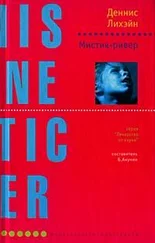
![Деннис Лихэйн - Когда под ногами бездна [Since We Fell ru]](/books/25722/dennis-lihejn-kogda-pod-nogami-bezdna-since-we-fe-thumb.webp)
